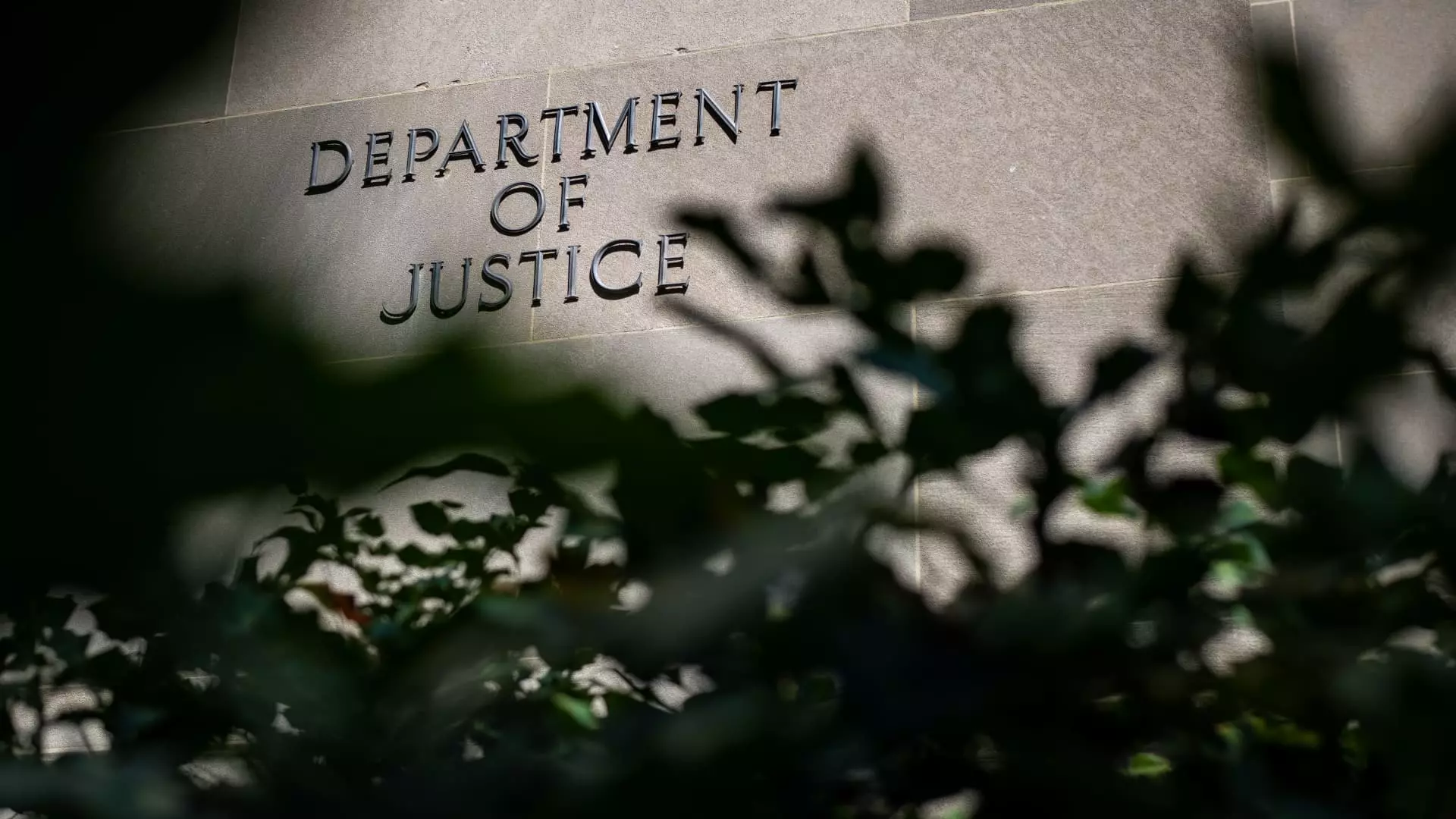In a stunning turn of events, the U.S. Justice Department has chosen to disband its National Cryptocurrency Enforcement Team, a move that signals a profound change in the government’s approach to cryptocurrency-related crimes. This abrupt decision, outlined in a memo from Deputy Attorney General Todd Blanche, shifts the responsibility of prosecuting digital asset crimes away from a centralized unit to local U.S. attorney’s offices. This decentralization raises significant concerns about the efficacy of our legal framework in combating crimes that increasingly exploit the virtual currency landscape.
The memo emphasizes a new priority: focusing resources predominantly on crimes such as terrorism and organized criminal activity rather than on the broader spectrum of liabilities that may arise from digital asset usage. As engaging as this approach appears, it raises alarm bells about the potential for abuse and exploitation in what is already a murky digital arena. The effort seems to reflect a calculated step back from comprehensive oversight evolved during the Biden administration, sacrificing regulatory rigor for a dangerously lax environment.
Political Undertones: A Favorable Landscape for the Powerful
The question must be raised: why has the Justice Department adopted this hands-off strategy under a Trump presidency that has shown a keen interest in fostering crypto-friendly regulations? Following the memo’s path, it becomes clear that government agencies are increasingly becoming vehicles for political interests rather than impartial defenders of justice. This aligns with Trump’s previous executive order aimed at promoting unfettered access to blockchain networks, which raises questions about the motivations behind such sweeping changes.
Moreover, Trump’s personal interests in cryptocurrency projects hint at the potential for corruption where regulatory policies intersect uncomfortably with personal gains. The fact that Trump and his family are financially invested in various cryptocurrency ventures creates an ethical quagmire that is hard to ignore. It implies that decisions made at the bureaucratic level may not solely serve the public; instead, they may cater quietly to specific vested interests with financial ties to the administration.
A Dangerous Precedent for Investor Protection
By instructing prosecutors to close investigations that do not neatly fit into their new streamlined focus on severe criminality, we risk embedding irresponsibility into the fabric of our financial systems. The directive not to pursue charges against crypto exchanges or mixed services for users’ actions indicates a massive retreat from ill-founded enforcement, but it simultaneously creates a precarious loophole that could endanger everyday investors.
Investors are often unaware of the nuanced legal responsibilities that accompany digital assets. Many enter the market ill-informed, and the government’s new stance may exacerbate these vulnerabilities, leaving them exposed to fraud and market manipulation without recourse. This misalignment with established investor protection mechanisms not only undermines the faith of both novice and experienced traders—it potentially endangers the foundational ethos of a financial system aimed at safeguarding its participants from nefarious actors.
The Illusion of Criminal Enforcement as Regulatory Oversight
The memo’s critique of previous efforts suggests a warped view of how justice and regulation interconnect. By labeling earlier enforcement actions as mere regulatory overreach, the Justice Department might inadvertently validate the reckless behavior of bad actors within the crypto space. This sweeping dismissal of enforcement as a ‘de facto regulatory tool’ invites a governance vacuum that could embolden criminals already lurking in the shadows, irrespective of the newly confined prosecutorial focus.
Moving forward, the idea that prosecuting actors who utilize digital assets for serious crimes is the sole responsibility of law enforcement underscores a disquieting detachment from accountability. While high-profile cases such as that of Binance tempt us to believe in a proactive legal framework, the new measures cast doubt on whether formal action can be wielded effectively to confront the reality of a rapidly evolving digital asset landscape.
Market Chaos Amid Deregulation
There’s an undeniable irony in this moment. While regulators retreat and the market continues to spin out of control, we witness a monumental drop in digital asset valuations. Bitcoin’s tumble from its nearly $110,000 high to around $78,000 exemplifies the adverse consequences of market speculation thriving unchecked. The broader cryptocurrency market’s loss of over $1.2 trillion in market cap since December indicates that the consequences of deregulation can be profoundly destabilizing.
As the Trump administration takes a more laissez-faire approach, questions remain about who will hold the unscrupulous accountable when things go wrong. The chaos that ensues from this push for deregulation carries the threat of another market collapse, leaving everyday investors bearing the brunt of the fallout. In an age where technology and finance are fused, the stakes have never been higher, yet the government remains curiously blind to the risks that its own policies create.



Leave a Reply